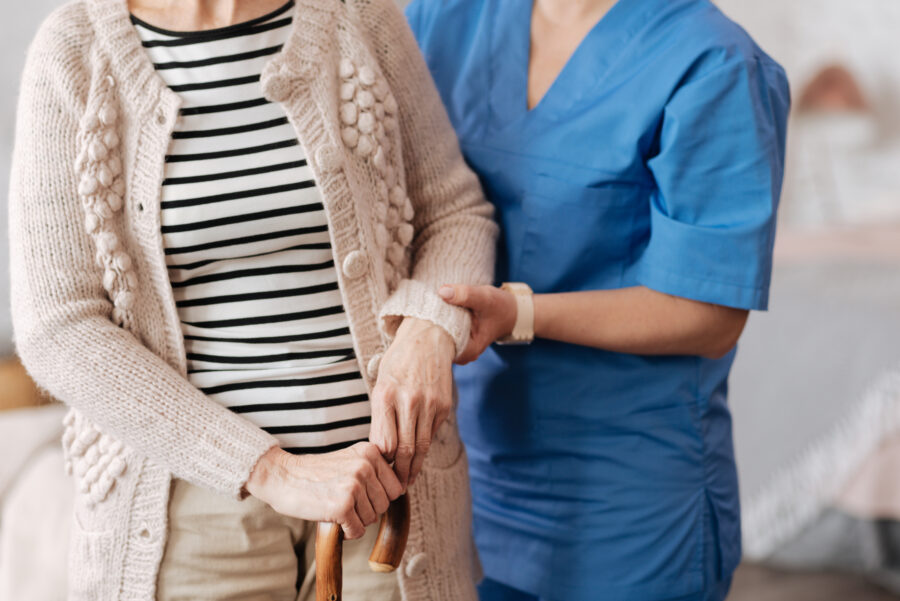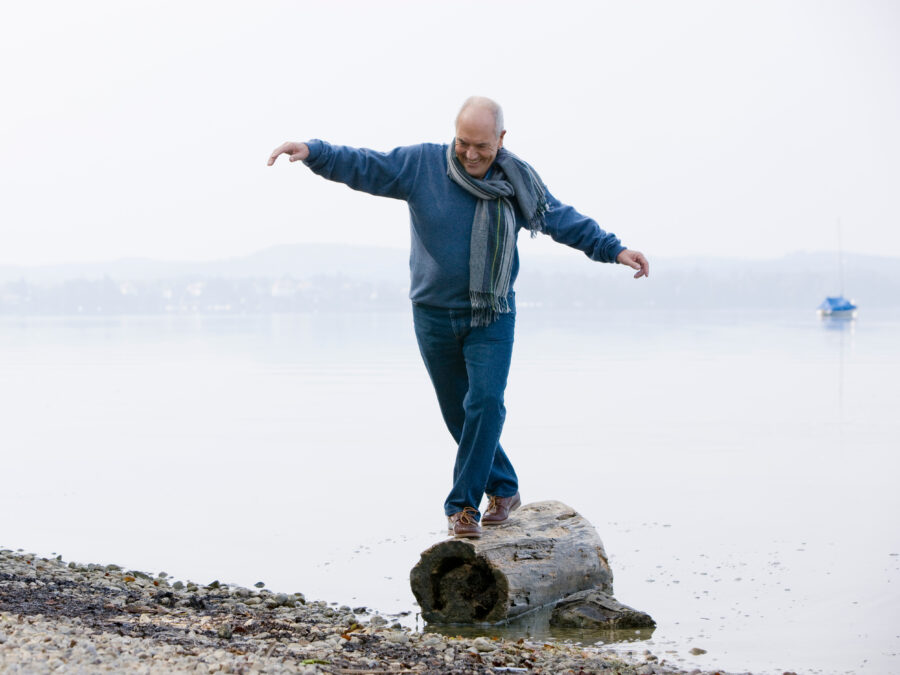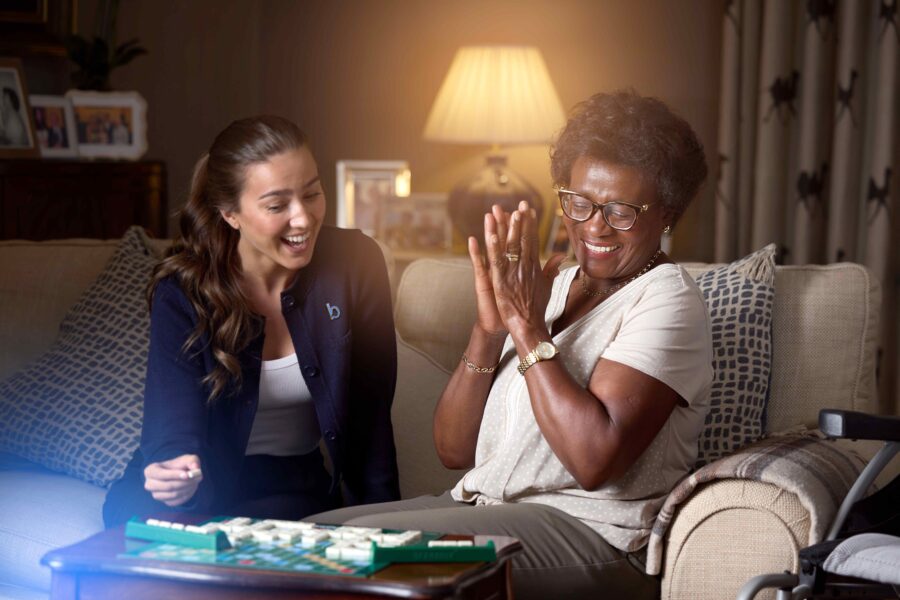Blog post
Preventing Falls in the Elderly
About one in three adults aged 65 and older will experience a fall each year.
Source: NHS
A fall can have a significant impact on our older loved one’s health, independence and overall quality of life.
OutsideClinic and Trinity Homecare are here to help families navigate these challenges.
What causes falls in the elderly?
Falls in older individuals are often a result of age-related changes and external factors.
Here are some of the key causes and risk factors:
Muscle weakness
As people age, they naturally lose muscle mass and strength, particularly in the lower body. This loss can lead to difficulties with walking, standing up from a chair or maintaining balance, making falls more likely.
Poor vision
Vision changes are common as we age, and conditions like cataracts, glaucoma or age-related macular degeneration can significantly impair an older person's ability to see obstacles, judge distances or navigate uneven surfaces.
Poor lighting, clutter and unfamiliar environments can further exacerbate these challenges.
Hearing loss and inner ear problems
Hearing loss isn’t just about sound - it’s also closely linked to balance. The inner ear plays a crucial role in maintaining equilibrium, and ear conditions, like vertigo or Ménière's disease, can lead to dizziness and falls.
Hearing loss can also make it harder for individuals to pick up on auditory cues that could prevent a fall, such as the sound of approaching hazards.
Medication side effects
Certain medications, especially those that affect the central nervous system such as sedatives, antidepressants and blood pressure drugs, can cause dizziness, drowsiness or drops in blood pressure, which can increase fall risks.
Health conditions
Conditions such as arthritis, diabetes, heart disease and neurological disorders (like Parkinson’s disease) can affect balance, coordination and overall mobility.
Environmental hazards
Homes filled with trip hazards - such as loose rugs, cluttered walkways, poor lighting or lack of handrails - significantly increase the risk of falls.
Improper footwear
Wearing ill-fitting shoes or slippers without proper support can contribute to slips and falls.
Cognitive impairments
Dementia, Alzheimer's disease and other cognitive impairments can cause confusion, disorientation and impaired judgment, increasing the risk of falls.
How to improve balance and prevent falls in the elderly
Preventing falls is a team effort, and as a family member, your support can make all the difference.
- Exercise and training: Gentle exercises, like balance training or tai chi, can improve stability and confidence. Encourage your loved one to participate in these activities regularly. NHS: Balance exercises
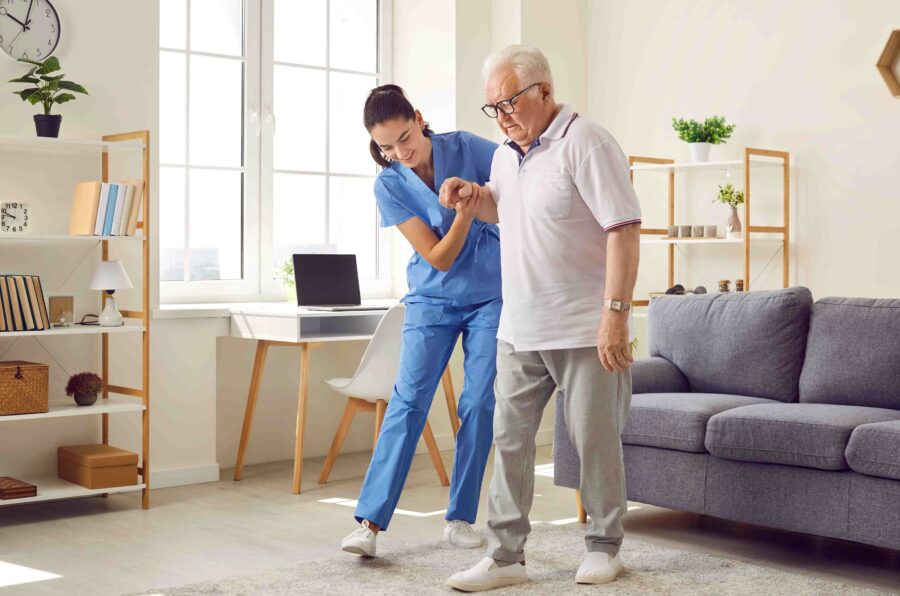
- Proper footwear: Ensure your loved one wears well-fitting slippers or shoes. Shoes should have non-slip soles, a sturdy grip and provide good ankle support. In addition, non-slip socks can be a great alternative for when shoes aren’t practical.
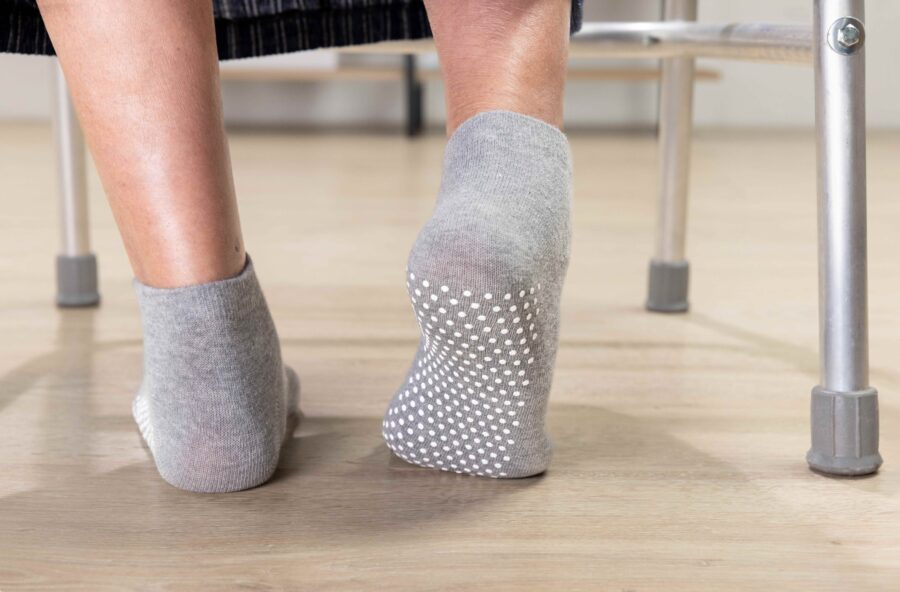
- Home safety tips: Simple adjustments, like removing tripping hazards, installing grab rails in bathrooms and ensuring adequate lighting, can make a big difference in preventing falls.
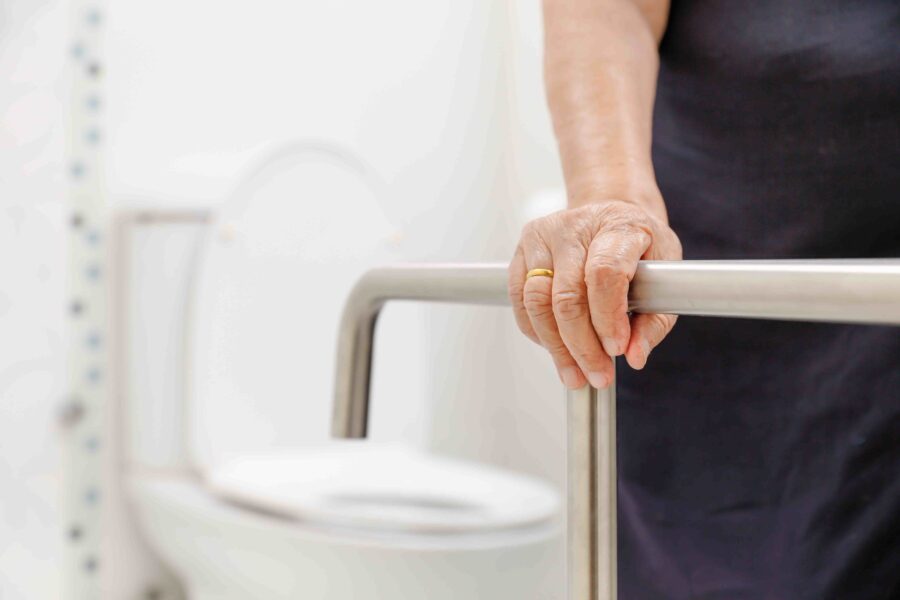
- Regular health check-ups: Regular eye and ear check-ups can help detect issues early and provide solutions, such as glasses or hearing aids, to keep your loved one steady. OutsideClinic offers home visits for eye and hearing tests, making it convenient and accessible for elderly individuals to get the care they need without leaving their home.
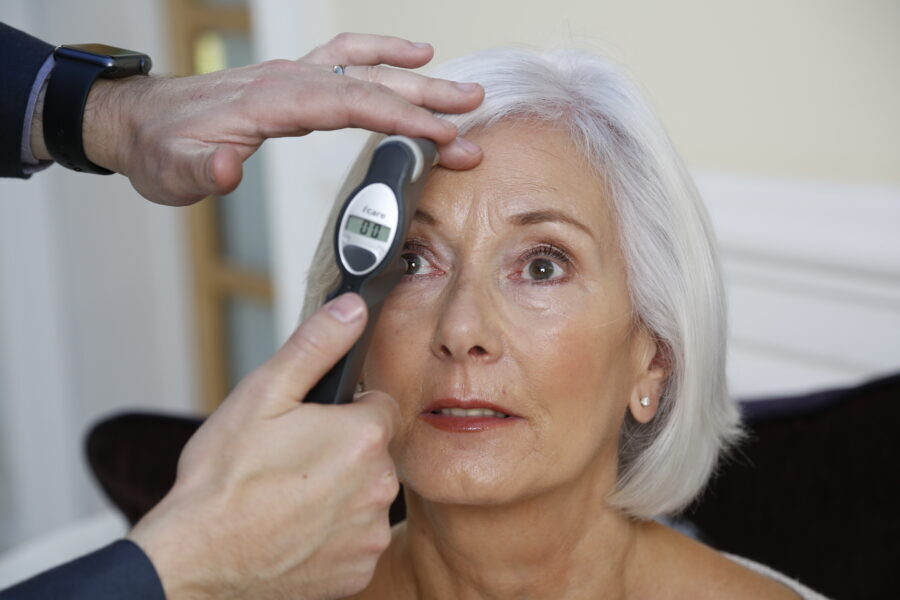
- Know when to get support: Research by the Live-in care hub suggests that there are a third fewer falls and a quarter less hip fracture reports when receiving care at home. This is why we are pleased to partner with Trinity Homecare who provide a broad range of services - whether you are looking for a trusted carer to visit once or twice a week for reassurance, or full-time live-in care.
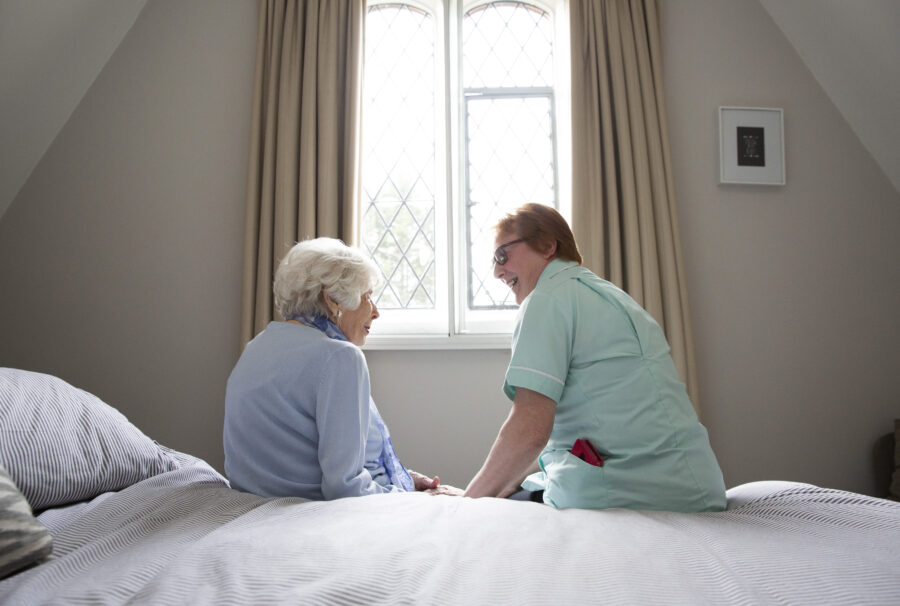
Why are falls so dangerous for the elderly?
In addition to the impact on families and care systems, falls can have a devastating impact on our older loved ones:
Physical injuries like fractures, broken bones and bruising
Falls are the most common cause of hip fractures and are responsible for over 95% of hip fractures among older adults. (Source: World Health Organization, “Falls,” WHO.)
Physical injuries can be more dangerous in older adults due to slower healing processes, the risk of infections and thinner, more fragile skin.
Emotional and psychological impact
Experiencing a fall can significantly impact a person’s confidence, leading to a fear of falling again. This fear often causes them to avoid activities, which weakens muscles and balance, increasing the risk of future falls.
Social isolation
Following a fall, some older individuals may withdraw from social activities or community engagements due to mobility challenges or embarrassment. Social isolation is linked to a range of negative health outcomes, including depression and cognitive decline.
At OutsideClinic and Trinity Homecare, we understand the profound impact that falls can have on the lives of elderly individuals and their families.
Regular eye and hearing check-ups can make a world of difference in reducing fall risks. With OutsideClinic’s convenient home visits, your loved ones can get the care they need without the hassle of leaving their home, ensuring their sight and hearing are at their best.
At the same time, Trinity Homecare’s expert carers can provide the day-to-day support your family needs to feel confident in keeping your loved one safe. Whether it’s help with mobility, medication or creating a fall-proof living space, their personalised care services are tailored to your family’s needs.
Explore Trinity Homecare’s services
Together, we’re here to help you protect the health, independence and dignity of your loved ones, ensuring they live safely and comfortably at home.

